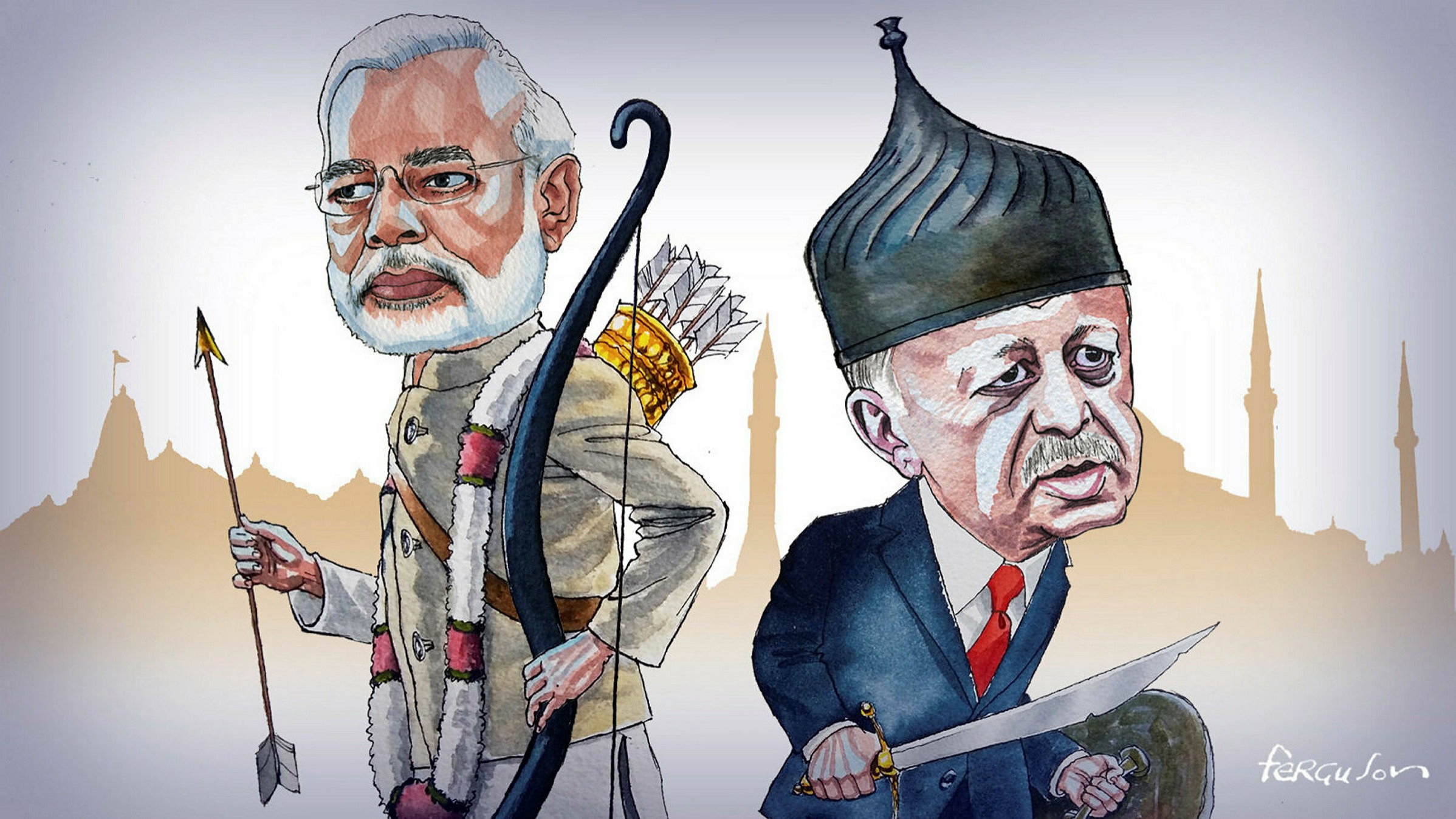Politicians, the world over, do not seem to laugh at themselves as much any longer. That self-deprecating sense of humour, which distinguishes a statesmanlike political figure in the crowd of ordinary practitioners of politics, is now a lost art – which probably explains why freedom of expression is at a premium in modern time. Turkish journalist Sedef Kabas is paying the price for her witty criticism of the powers that be, through which she hoped to enrich intellectual exchange in a democratic ambience. Unfortunately, we live in a world where democracies have started abhorring criticism, demonize critics and scotch dissent, and that include the world’s largest democracy India, which ranks a lowly 142 out of 180 nations in Reporters Without Borders’ (RSF) world press freedom index, with Turkey following suit at 153. This is the 73rd year of India adopting her flexible constitution, which grants all citizens the right to freedom of speech and expression. But recent events have put a big question mark on how free India actually is, especially in the context of the ruling Narendra Modi regime’s penchant for using draconian laws to silence journalists. As independent media and individual critics of Modi’s policies continues to face harassment, through vicious online trolling, nagging tax raids and liberal misuse of sedition law, Indian democracy slides deeper into crisis. While invoking the draconian Public Safety Act against Kashmiri scribe Sajad Gul recently, the Indian administered Kashmir’s administration, in its dossier, painted the trainee journalist as a “puppet under the banner of journalism” who reports less about Kashmir’s welfare and being well-educated, is capable of using social media to provoke people against the government. Clearly, the Indian State is doing something that it should not have in the first place – coercive manipulation of journalists. Gul is not the only one to have faced the State’s wrath. Another Kashmiri journalist Qazi Shibli spent 9 months in prison for breaking a news of the Modi government deploying an additional 35 thousand paramilitary troopers in Kashmir after robbing the province of its unique constitution-granted status.
Early last year, several editors from multiple independent news outlets were penalized for running story on the death of farmer activist protesting the new agricultural laws, which the Modi government eventually retracted under intense public pressure. Press freedom in India, which nosedived ever since Modi became Prime Minister in 2014, reached its nadir when the Twitter account of a popular Indian magazine – which won the 2021 Louis M Lyons Award for Conscience and Integrity in Journalism – was blocked on government instruction. And those who believed that the trend of influencing editorial policies through coercion or business manipulation is only confined to the Indian shore, were in for a rude shock. Way back in 2016, this columnist was formally advised by the Editor of a leading foreign publication to avoid sending articles too critical of Modi or his government. In fact, fundamentalist elements supporting the Hindu right wing Premier had launched a calibrated hate campaign against this journalist for criticizing the Modi regime’s flawed policies and intent to recast a multi-faith India into a homogenous Hindu homeland. Some time ago, on condition of anonymity, a ruling Bharatiya Janata Party (BJP) insider had referred to the existence of a secret list, containing names of scribes in alphabetical orders whom Prime Minister Narendra Modi and his ideological mentors considered as possible threats, in their endeavour to roll out a devious majoritarian agenda. As elaborated in journalist Swati Chaturvedi’s authoritative book on the secret world of BJP’s digital army too, the BJP functionary mentioned about a dedicated troll army – maintained and nourished with lavish funding from like-minded Indians settled overseas – entrusted with the job of heckling, harassing and intimidating critics in the digital space.
Ironically, dissent – whether right or wrong, good or bad – is no longer considered a sacred right of citizens in India, even as journalists are labelled as traitors and law enforcement agencies cajoled into initiating false cases against them. Misusing the Indian penal code to implicate journalists on trumped up charges is a common phenomenon in Modi’s India, as evident from Siddique Kappan’s continued languishment in prison for trying to do an investigative story on a heinous gang rape and murder in India’s Hindu right wing-ruled Uttar Pradesh province. Significantly, a former member of India’s National Security Advisory Board had earlier suggested to this writer speedy implementation of police reforms as a remedy to this criminal immorality. Alarmingly, under Modi’s watch, sedition charges have risen by almost a third, as evident from research data available with Article 14 website. Of the 11,000 people accused of sedition in the last decade, nearly two thirds of charges have been filed after 2014 – the year Modi was elected as Prime Minister for the first time. Most of the charges since then have been aimed at cornering critics of the governing party, with nearly 150 people being accused of sedition merely for making critical remarks against Prime Minister Modi. Above all, between 2014 and 2020, during Modi’s time in office, there was a whopping 28 percent jump in the number of sedition cases filed each year, as compared to the annual average recorded during Modi’s predecessor Manmohan Singh’s tenure, between 2010 and 2014. With pressure mounting on the Indian media, free press seems to be a utopia for now. Karl Marx was among the greatest journalists of the 19th century who had constant run-ins with the authorities over State censorship. To Marx, the free press was the omnipresent open eye of popular spirit, embodiment of the trust a people have in itself. Only fearless journalism can uphold that spirit which motivates the press to stand up to governments showing authoritarian tendencies, as witnessed nowadays frequently.
Written exclusively for NAT By: Seema Sengupta
Seema Sengupta is a Calcutta based journalist and columnist. Follow her on Twitter: @SeemaSengupta5
News about Turkey offers readers different points of view. The opinion expressed in this text is not necessarily shared by the editors of NAT.



